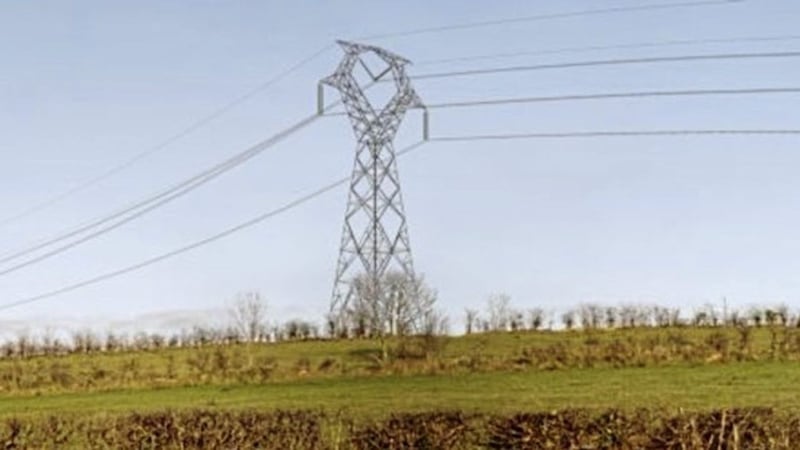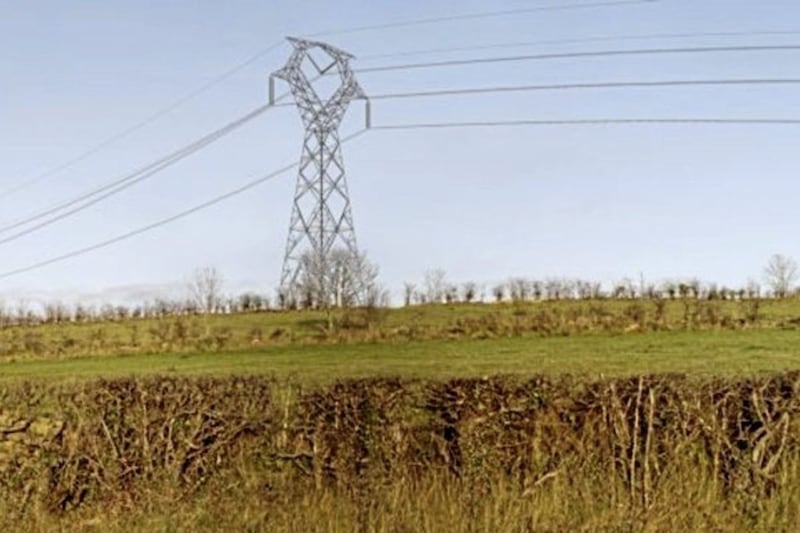BUSINESS groups have welcomed the go-ahead for a cross-border electricity link-up described as "crucial" for handling growing demand across the island.
Infrastructure minister Nichola Mallon has granted planning permission for the north-south interconnector which will link the two power grids.
Stretching from counties Tyrone and Armagh to Meath, construction of the 400kv overhead line is expected to take three years.
It will start at a substation in Turleenan, Moy in Co Tyrone and run to Crossreagh, Co Armagh and then into counties Monaghan, Cavan and Meath.
The northern stretch, involving a 34.1km overhead power line on 102 towers, is being managed by the Systems Operator for Northern Ireland (SONI), while EirGrid is responsible for the southern route.
Planning approval for the section in the Republic was given back in 2016 and yesterday Ms Mallon gave the green light in the north following a series of delays and hurdles, including a public inquiry.
"Following the quashing of the previous decision, I have carefully reconsidered the proposal and the up-to-date environmental information and have concluded that planning permission should be granted for the development which remains of strategic importance for our island economy," she said.
"I have also taken into account the report by the Planning Appeals Commission that included a full consideration of the planning issues and endorsed the significant strategic importance of the development for Northern Ireland and its compliance with planning policy.
"The north-south electricity interconnector remains crucial to handling growing demand across the electricity transmission systems across the island of Ireland, promoting greater competition within the Single Electricity Market (SEM) for wholesale electricity trading and to protecting security of supply.
"It will also enhance network stability and support the future growth of renewable generation and help support our economic recovery from the Covid-19 crisis.
"These economic and system benefits will benefit citizens across our community."
Applications were previously approved by the Department for Infrastructure in 2018, but a legal challenge saw them quashed.
The scheme was opposed by some landowners, and campaign group Safe Electricity Armagh and Tyrone last night said it was "very disappointed" by the decision.
"We are not anti-development, but we believe any proposal must be evidence-led and properly take account of the impact it will have on local people," said chairperson Jim Lennon.
"I agree with minister Mallon that we need 'to deliver a sustainable infrastructure that supports the region’s economic wellbeing and indeed improved wellbeing for all'.
"This project, however, fails on both counts."
But Jo Aston from SONI said the interconnector was "undoubtedly the most important infrastructure scheme on the island today".
"The project is, without question, a key enabler for economic growth as Northern Ireland emerges from the Covid-19 pandemic," she said.
"It will create local construction jobs through its delivery programme; will help reduce the cost of electricity and will provide a route to market for renewable energy at a time when the green-collar sector needs it most."
Steven Agnew, Head of the Northern Ireland Renewables Industry Group (NIRIG) said: “The North South Interconnector is the most significant infrastructure project of our generation and will deliver very real, tangible benefits for consumers, the economy and the environment.
“This is a particularly significant moment for the renewables sector, as the interconnector’s construction is vitally important in our fight against climate change. Its creation will allow for the efficient flow of renewable electricity across the border in both directions, allowing us to capitalise on the scale of opportunity that exists locally.
“With this significant project finally receiving the stamp of approval after almost 10 years, the onus must now be on creating a cohesive Energy Strategy that reflects this important step forward. Let’s not let another decade pass us by to make real progress and instead set a target for 80 per cent renewable electricity by 2030, harnessing the opportunities renewables presents both now as part of the green recovery and in the future.”
Paul Stapleton from NIE Networks said: "The investment is of strategic importance to Northern Ireland and will support economic growth by ensuring a long term security of supply and access to lower-cost electricity for customers.
"It will bring increased benefits including improving the reliability and security of supply, enabling cheaper electricity generation and facilitating the connection of more renewable energy to the network."
Retail NI chief executive Glyn Roberts said it was "excellent news for our economy as it is an investment in the future of our energy infrastructure and securing electricity supply".
Ann McGregor from NI Chamber said it was "a vital piece of infrastructure that will ensure the effective operation of an efficient all-island electricity market, exert downward pressure on electricity prices for business and domestic consumers throughout Northern Ireland, and utilise renewable energy resources".







